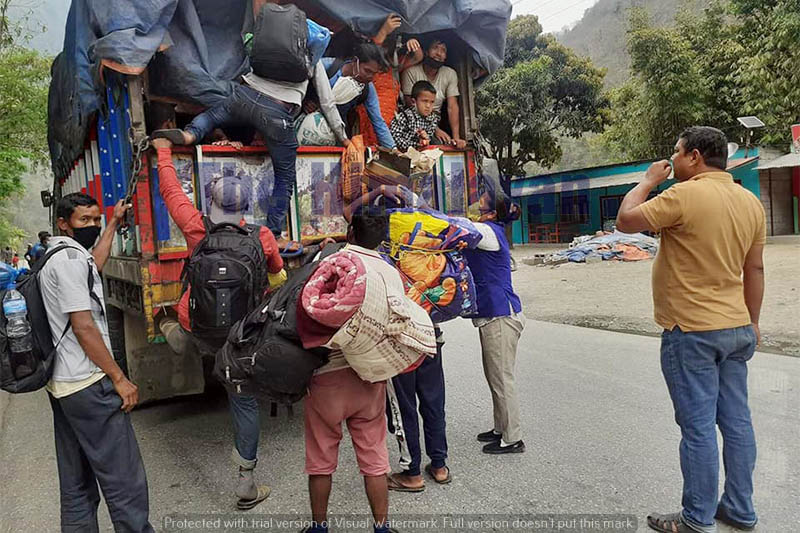Pandemic threatens to upend labour relations
Kathmandu, May 20
Labour relations in Nepal, which was claimed to have improved in the recent years, especially after introduction of new Labour Act in 2017, has started deteriorating with the unfavourable circumstances brought on by the outbreak of coronavirus.
The entire economy has pretty much been at a standstill after the nationwide lockdown was imposed almost two months ago to prevent the spread of COVID-19. With most industries shut while the lockdown continues to be extended, employers have not only started reducing their workforce but also slashed the salary/wages of their staffers, which has hit the livelihood of both formal and informal sector workers.
Against the direction of the government to industries to issue full payment to workers throughout the lockdown period, the Federation of Nepalese Chambers of Commerce and Industry (FNCCI) — the largest umbrella body representing the private sector — has already notified the government that businesses will not be able to pay more than 50 per cent of the monthly salary to workers during this period.
Meanwhile, Hotel Association of Nepal — the representative body of tourist standard hotels in the country — has already declared that hotels across the country will be shut till November and merely 12.5 per cent of the workers’ basic monthly salary will be paid till then.
Workers in the country have expressed outrage and said such moves threaten to regress the employer-employee
relationships. Representatives of different trade unions have said that decisions of industries and businesses to reduce workers’ salary and cut down staffers are unacceptable as these decisions were taken unilaterally.
Puskar Acharya, president of Nepal Trade Union Congress, said that the unilateral decisions on salary payments and staff cuts taken by the industries have started to adversely affect their cordial relationship with workers.
“Thousands of workers are risking their lives so that various industries can operate partially,” said Acharya, adding, “In such a context, unilateral decisions of industries related to workers can have lasting negative effects.”
Meanwhile, Ramesh Badal, vice president of General Federation of Nepalese Trade Unions (GEFONT), said that employer-employee conflict is natural during such crises. “However, both parties should come together for an amicable solution once the lockdown is lifted,” he said, further imploring employers to remember this crisis will not last forever.
Officials at the Ministry of Finance reiterated that industries should make full payment to their staffers during the lockdown as the government has assured subsidised loan facility to businesses affected by the crisis and also announced to provide workers’ contribution to the Social Security Fund.
However, business owners say that they are not in a position to even pay half the salary of their staffers during the lockdown period.
“Most businesses have been completely shut since months and are on the verge of collapse. Hence, they are neither in a position to sustain workers nor to fulfil any other financial and tax liabilities to the banks and financial institutions and the government,” said Bhawani Rana, president of FNCCI. “Adequate and effective relief package from the government is crucial to sustain businesses and workers.”
Negotiation is the only solution: ILO
International Labour Organisation (ILO) has said that workers and employers should hold dialogues and reach a consensus to address the disrupted labour relationship during this crisis.
“Neither the government nor agencies like ILO can provide readymade solutions for labour issues resulted by the COVID-19.
The two parties should hold repeated consultations and dialogues and ultimately reach a middle ground and ensure that labour relationship is intact today and tomorrow,” said Richard Howard, director at ILO office in Nepal.
As per him, these parties should figure out a win-win solution for both parties while the government should create an environment for negotiation and facilitate both the parties through necessary policy guidance.
A version of this article appears in e-paper on May 21, 2020, of The Himalayan Times.






